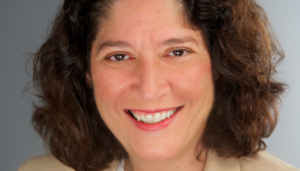
In a move praised by banking industry advocates, New York Governor Cuomo has announced his nomination of Maria Vullo as the state’s top financial regulator. For the last 20 years Vullo has been working as a lawyer and partner in the law offices of Paul Weiss Rifkind Wharton & Garrison LLP.
Vullo’s firm has a history of defending large corporations and financial institutions from the same kind of government regulators Vullo will be in charge of as the new superintendent of the Department of Financial Services. In 2013, for instance, Vullo represented a Citigroup Inc mortgage unit in a “whistleblower suit” alleging that Citi and other mortgage lenders ran afoul of contracts with government-controlled mortgage-finance companies.
Vullo’s appointment, which needs to be confirmed by the state Senate, would fill a regulatory vacancy created when Benjamin Lawsky stepped down as head of the DFS in June 2015.
However, Vullo’s decades of experience working as a legal shield for Wall Street and corporate criminals have already led banking and corporate executives to breathe a public sigh of relief in support of her nomination.
“She is really smart and a really excellent lawyer,” said top Wall Street defense lawyer Rodgin Cohen, senior chairman at Sullivan & Cromwell LLP, a New York law firm that has long advised major banks in how to thwart government attempts at regulation.
Bloomberg.com wrote that Cuomo’s pick “signaled a shift in New York’s oversight of Wall Street, tapping a long-time corporate lawyer to run the state banking regulator previously overseen by an aggressive career law enforcer.”
Kathryn Wylde, head of the Partnership for New York City, a pro-business group, called Vullo “a perfect choice.”
The DFS came into existence in 2011 after Cuomo successfully merged state banking and insurance regulators into one agency. While the U.S. Office of the Comptroller of the Currency regulates national banks, the DFS regulates banks chartered in New York, and because of Wall Street’s location in the state, this would include regulating many of the biggest international banks. The agency has the ability to revoke bank licenses in New York, and therefore the idea was that the agency could extract big penalties from the financial industry and potentially be a windfall for state coffers.
Initially led by Lawsky, the DFS went after big banks in a manner described by Wall Street executives as aggressive and Lawsky was at times accused of overreaching.
When Lawsky announced that he was stepping down, the ball was in Cuomo’s court to either replace him with a Wall Street insider, a common practice that many describe as a “revolving door” between regulatory agencies and Wall Street, or go with someone who has never worked for corporate or financial interests.
According to the NY Post, Wall Street advocates unsurprisingly lobbied the governor’s office to “pick a kinder, gentler superintendent” throughout the months-long process of finding a replacement for Lawsky.
The myth of democracy and the rule of the banks under capitalism can be easily seen in this all-too-common tale of Wall Street essentially regulating itself.
Some politicians look at these obvious conflicts of interest and are astounded that wealthy bankers and CEOs are able to constantly exert influence on and trade favors with elected officials. Instead of fighting for a new system, they argue, this sort of “cronyism” or corruption should be smashed, thereby leaving “pure” and “uncorrupted” capitalism to forge a just society.
The underlying, and in our view incorrect assumption, is that the state is an independent entity, standing above the contradictions of the society it governs and merely tries to be an impartial arbiter between two opposing parties. Socialists understand, however, that the state is in fact a tool for the rule of one class over another, in our case for the rule of Capital over Labor.
Whenever society’s wealth is concentrated in the hands of a tiny minority, an inherent feature of capitalist society, the 1 percent will naturally use that wealth to direct the political process. For members of the capitalist class, the costs associated with the maintenance of their state—including lobbying and campaign contributions to compliant politicians like Andrew Cuomo—are worthwhile investments in the stability of their system.
In order for working and oppressed people to gain any sort of justice, we must be fully aware of the fundamental nature of the state and be wary of politicians whose politics serve only to derail the growing people’s movements against the 1 percent and their system of exploitation and oppression.





